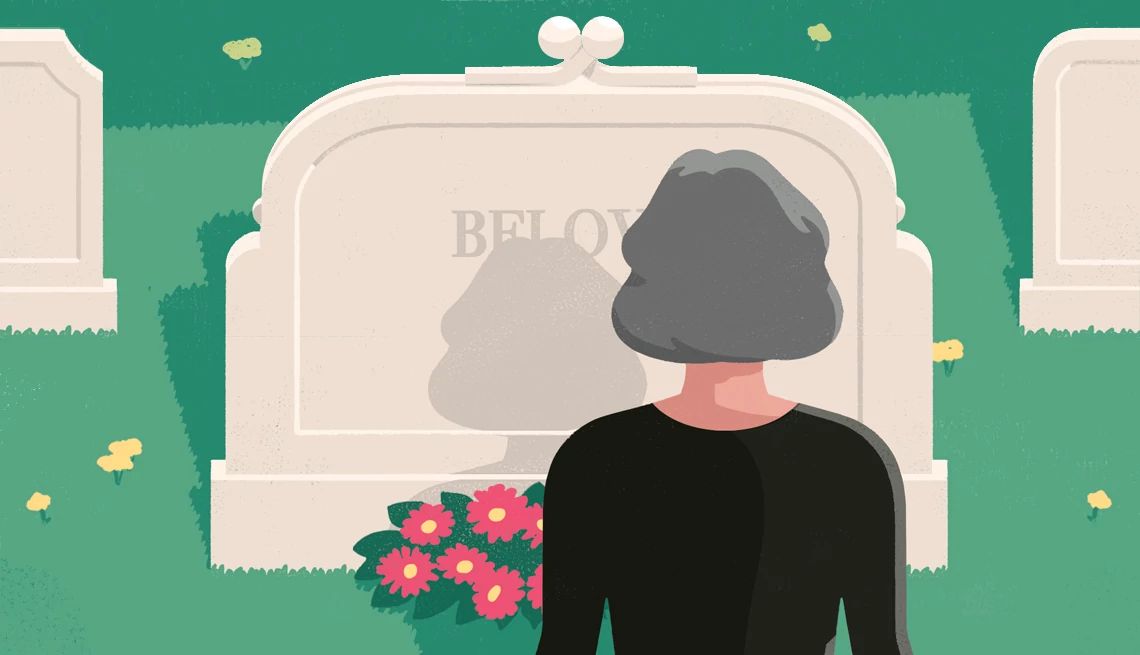AARP Hearing Center


In May 2022, a few weeks before Angela Ryan, a nurse in Chatham, New Jersey, was going to celebrate her retirement, her husband, Tom, died suddenly at the age of 63. “My grief was physically painful,” Ryan remembers.
The couple had begun meeting about an estate plan, but Ryan was still left with a deluge of financial tasks, including transferring accounts and sorting out Social Security options. “It was overwhelming to deal with, especially when you’re grieving,” says Ryan, now 66.
On top of the emotional trauma, many surviving spouses must also cope with financial losses. Women who are widowed — in the U.S., 75 percent of bereaved spouses are women — experience an average individual income drop of 11 percent annually, according to a 2020 report published by the Federal Reserve Bank of Chicago. All too often, the financial setbacks of widowhood are unexpected. Some 41 percent of widows say they had not engaged in any financial planning before their spouse’s death, according to a 2024 Thrivent survey.
If you’re facing a financial crunch after your partner’s death, it’s important to avoid rushing into major decisions; panic is not a good incubator for sound money choices. “Take a deep breath, then break down the tasks one by one,” says Cindy Hounsell, president of the nonprofit Women’s Institute for a Secure Retirement. To help you sort through what is already a trying time, here are some tips for overcoming the financial challenges of widowhood.
Your Social Security income may fall
When a Social Security beneficiary dies, their retirement benefit ends. So if both spouses were collecting monthly payments, one of those streams will dry up.
If you’re the widowed spouse, however, you might be able to receive a survivor benefit that’s higher than your own benefit. (Note that the longer a person waits to claim Social Security, up until age 70, the larger the potential survivor benefit that person will leave for a surviving spouse with lower earnings.)
This survivor payment, unfortunately, is unlikely to match your previous income if both you and your spouse were receiving benefits. And if you claim survivor benefits before reaching Social Security’s full retirement age (FRA) — 67 for those born in 1960 or later — the monthly benefit will be reduced.
To be eligible for survivor benefits at all, the surviving spouse must be 60 or older, married to the deceased for at least nine months before the time of death, and not remarried before age 60, though there are some exceptions. Survivors who are disabled may qualify at age 50. If you are caring for children from the marriage who are under 16 or disabled, you may be eligible at any age for the benefit.


































































More From AARP
25 Ways to Bind up Grief’s Wounds
How to heal when the deep shadows of loss pierce your heartHow My Father’s Broken Watch Helped Make Me Whole Again
This simple talisman of love and comfort guided me through a dark time
Essay: My Dad Lives On, Through the Record Albums He Left Behind
Woman rediscovers dad by posting videos about his collection on Instagram